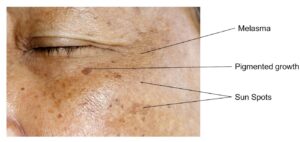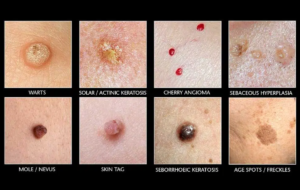Freckles and pigmentation refer to different types of skin discoloration, and the primary distinctions lie in their causes, characteristics, and appearance.
-
- Cause:
-
- Freckles: Freckles are generally genetic and result from an increased production of melanin in response to sunlight exposure. They are often more prominent in individuals with fair skin.
-
- Pigmentation: Pigmentation is a broader term that encompasses various skin discolorations, including sunspots, melasma, and post-inflammatory hyperpigmentation. Pigmentation irregularities can be influenced by factors such as sun exposure, hormones, and inflammation.
-
- Cause:
-
- Appearance:
-
- Freckles: Freckles are small, concentrated spots of melanin that are usually light to dark brown in color. They are commonly found on the face, arms, and shoulders.
-
- Pigmentation: Pigmentation disorders can manifest as larger patches, spots, or uneven skin tone. The color of pigmented areas can vary and may include brown, tan, or even grayish tones.
-
- Appearance:
-
- Distribution:
-
- Freckles: Freckles are often distributed randomly and may increase in number with sun exposure. They are more common in areas exposed to sunlight.
-
- Pigmentation: Pigmentation irregularities can occur in specific patterns, such as the symmetrical pigmentation seen in melasma or the localized discoloration resulting from injury or inflammation.
-
- Distribution:
-
- Associations:
-
- Freckles: Freckles are generally harmless and are not associated with any underlying medical conditions. They are considered a natural variation in skin pigmentation.
-
- Pigmentation: Pigmentation issues can be associated with various factors, including hormonal changes (as in pregnancy-related melasma), medication side effects, or certain medical conditions.
-
- Associations:
It’s important to note that both freckles and pigmentation can be influenced by sun exposure, and proper sun protection is recommended to prevent their development or worsening. If concerned about skin discoloration, it is advisable to consult with a dermatologist for a proper diagnosis and appropriate management






